『武士道 Bushido 』-新渡戸稲造(Inazo Nitobé)-
Chapter 13
(The Sword, the Soul of the Samura 「刀」なぜ武士の魂なのか)
Bushido, the Soul of Japan by Inazo Nitobe
[Book]
[reading]
・Chapter TOP 新渡戸稲造(Inazo Nitobé)TOP
・Chapter 00(Prefaces 序文)
・Chapter 01(Bushido as an Ethical System 武士道とは)
・Chapter 02(Sources of Bushido 武士道の源)
・Chapter 03(Rectitude or Justice 「義」)
・Chapter 04(Courage, the Spirit of Daring and Bearing 「勇」)
・Chapter 05(Benevolence, the Feeling of Distress 「仁」)
・Chapter 06(Politeness 「礼」)
・Chapter 07(Veracity or Truthfulness 「誠」)
・Chapter 08(Honor 「名誉」)
・Chapter 09(The Duty of Loyalty 「忠義」)
・Chapter 10(Education and Training of a Samurai 武士は何を学びどう己を磨いたか)
・Chapter 11(Self-Control 人に勝ち己に勝つために)
・Chapter 12(The Institutions of Suicide and Redress 「切腹」)
・Chapter 13(The Sword, the Soul of the Samurai 「刀」)
・Chapter 14(The Training and Position of Woman 武士道が求めた女性の理想像)
・Chapter 15(The Influence of Bushido 「大和魂」)
・Chapter 16(Is Bushido Still Alive? 武士道は蘇るか)
・Chapter 17(The Future of Bushido 武士道から何を学ぶか)
・[修養]、
・[自警録]
and made it the emblem of power and prowess. When Mahomet proclaimed that "The sword is the key of Heaven and of Hell," he only echoed a Japanese sentiment. Very early the samurai boy learned to wield it. It was a momentous occasion for him when at the age of five he was apparelled in the paraphernalia of samurai costume, placed upon a go-board[23] and initiated into the rights of the military profession by having thrust into his girdle a real sword, instead of the toy dirk with which he had been playing. After this first ceremony of adoptio per arma, he was no more to be seen outside his father's gates without this badge of his status, even if it was usually substituted for every-day wear by a gilded wooden dirk. Not many years pass before he wears constantly the genuine steel, though blunt, and then the sham arms are thrown aside and with enjoyment keener than his newly acquired blades, he marches out to try their edge on wood and stone. When be reaches man's estate at the age of fifteen, being given independence of action, he can now pride himself upon the possession of arms sharp enough for any work. The very possession of the dangerous instrument imparts to him a feeling and an air of self-respect and responsibility. "He beareth not his sword in vain." What he carries in his belt is a symbol of what he carries in his mind and heart—Loyalty and Honor. The two swords, the longer and the shorter—called respectively daito and shoto or katana and wakizashi—never leave his side. When at home, they grace the most conspicuous place in study or parlor; by night they guard his pillow within easy reach of his hand. Constant companions, they are beloved, and proper names of endearment given them. Being venerated, they are well-nigh worshiped. The Father of History has recorded as a curious piece of information that the Scythians sacrificed to an iron scimitar. Many a temple and many a family in Japan hoards a sword as an object of adoration. Even the commonest dirk has due respect paid to it. Any insult to it is tantamount to personal affront. Woe to him who carelessly steps over a weapon lying on the floor!
The game of go is sometimes called Japanese checkers, but is much more intricate than the English game. The go-board contains 361 squares and is supposed to represent a battle-field—the object of the game being to occupy as much space as possible.
So precious an object cannot long escape the notice and the skill of artists nor the vanity of its owner, especially in times of peace, when it is worn with no more use than a crosier by a bishop or a sceptre by a king. Shark-skin and finest silk for hilt, silver and gold for guard, lacquer of varied hues for scabbard, robbed the deadliest weapon of half its terror; but these appurtenances are playthings compared with the blade itself.
The swordsmith was not a mere artisan but an inspired artist and his workshop a sanctuary. Daily he commenced his craft with prayer and purification, or, as the phrase was, "he committed his soul and spirit into the forging and tempering of the steel." Every swing of the sledge, every plunge into water, every friction on the grindstone, was a religious act of no slight import. Was it the spirit of the master or of his tutelary god that cast a formidable spell over our sword? Perfect as a work of art, setting at defiance its Toledo and Damascus rivals, there is more than art could impart. Its cold blade, collecting on its surface the moment it is drawn the vapors of the atmosphere; its immaculate texture, flashing light of bluish hue; its matchless edge, upon which histories and possibilities hang; the curve of its back, uniting exquisite grace with utmost strength;—all these thrill us with mixed feelings of power and beauty, of awe and terror. Harmless were its mission, if it only remained a thing of beauty and joy! But, ever within reach of the hand, it presented no small temptation for abuse. Too often did the blade flash forth from its peaceful sheath. The abuse sometimes went so far as to try the acquired steel on some harmless creature's neck.
The question that concerns us most is, however,—Did Bushido justify the promiscuous use of the weapon? The answer is unequivocally, no! As it laid great stress on its proper use, so did it denounce and abhor its misuse. A dastard or a braggart was he who brandished his weapon on undeserved occasions. A self-possessed man knows the right time to use it, and such times come but rarely. Let us listen to the late Count Katsu, who passed through one of the most turbulent times of our history, when assassinations, suicides, and other sanguinary practices were the order of the day. Endowed as he once was with almost dictatorial powers, repeatedly marked out as an object for assassination, he never tarnished his sword with blood. In relating some of his reminiscences to a friend he says, in a quaint, plebeian way peculiar to him:—"I have a great dislike for killing people and so I haven't killed one single man. I have released those whose heads should have been chopped off. A friend said to me one day, 'You don't kill enough. Don't you eat pepper and egg-plants?' Well, some people are no better! But you see that fellow was slain himself. My escape may be due to my dislike of killing. I had the hilt of my sword so tightly fastened to the scabbard that it was hard to draw the blade. I made up my mind that though they cut me, I will not cut. Yes, yes! some people are truly like fleas and mosquitoes and they bite—but what does their biting amount to? It itches a little, that's all; it won't endanger life." These are the words of one whose Bushido training was tried in the fiery furnace of adversity and triumph. The popular apothegm—"To be beaten is to conquer," meaning true conquest consists in not opposing a riotous foe; and "The best won victory is that obtained without shedding of blood," and others of similar import—will show that after all the ultimate ideal of knighthood was Peace.
It was a great pity that this high ideal was left exclusively to priests and moralists to preach, while the samurai went on practicing and extolling martial traits. In this they went so far as to tinge the ideals of womanhood with Amazonian character. Here we may profitably devote a few paragraphs to the subject of
Read文献、
book文献
TOP
日本の魂ー日本思想の解明ー
日本的思考の根源を見る。
”忠義”は追従ではない。”名誉”は求める心である。
(第三章 義-あるいは正義について)
サムライにとって、 卑怯な行動や不正な行動ほど恥ずべきものはない。
(第九章 忠義)
武士道は、われわれの良心を主君の奴隷となすべきことを要求しなかった
(第十章 武士の教育)
武士道は経済とは正反対のものである。それは貧しさを誇る。
(第十一章 克己)
心の奥底の思いや感情—特に宗教的なもの—を雄弁に述べ立てることは、日本人の間では、それは深遠でもなく、 誠実でもないことの疑いないしるしだと受け取られた。
(第十四章 女性の教育と地位)
妻がその夫、家庭そして家族のために身を捨てることは、男が主君と国のために身を捨てるのと同様、自発的かつみごとになされた。
|
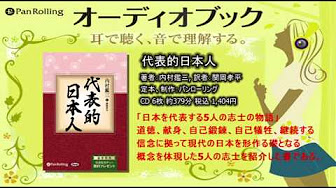
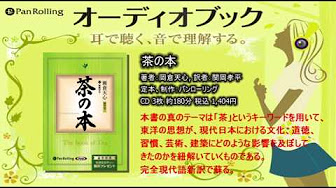
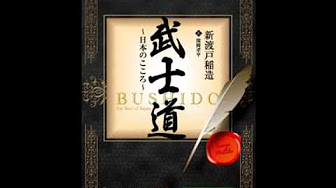


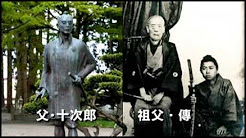

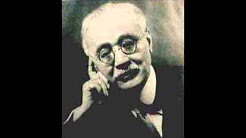



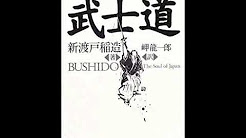
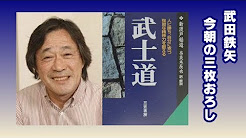
・新渡戸稲造
第1弾「世界を結ぶ『志』~新渡戸稲造の生涯~」、
第2弾「未来につながる『道』~新渡戸稲造の武士道~」、
第3弾「すべてに根ざす『愛』~新渡戸稲造の苦悩~」、
・ 新渡戸稲造の至極の名言集
・「新渡戸稲造の名言」20話
| |
・Bushido: The Soul of Japan by Inazo Nito(1-18)
・Bushido: The Soul of Japan by Inazo Nitobe(1-18)
・武士道「BUSHIDO」Japanese Ver.
・≪AI朗読≫武士道
・【武田鉄矢】『武士道』完全版
|
Bushido, the Soul of Japan
『武士道は定式化されたものではないが、昔もそして今も、日本人を鼓舞し、わが国を動かす原動力なのである』
日本人が日本人たりえる所以。
国家としての歴史的哲学体系を持たない日本の、現代社会においても尚、我々の血肉となり、在り続ける道徳律の根幹は「武士道」にあり。
日本人 新渡戸稲造博士が世界に発信した日本人論。
世代と国境を越え今なお読み継がれている世界的ベストセラー。
西洋・東洋の文化・哲学・思想と照らし合わせながら、その特異性と唯一無二の行動規範・心の拠り所を詳細に解説した普遍の書が、完全現代語訳、プロフェッショナルのナレーションで今蘇る。
21世紀。世界第三位の経済大国であるわが国日本。
政治的にも文化的にもより身近に世界と対峙する現代においてこそ、われわれの心の中に脈々と流れ続ける、日本人が日本人足らしめる「武士道」の精神を紐解く時なのではないだろうか。
本書は1世紀の時を超えた今も尚色褪せること無く、むしろその博識と見解、交える事例とそのユーモアに溢れた表現により現代人の我々にも実に痛快に日本の心「武士道」を理解させてくれる。
「武士道」がいつどのようにして始まったのか、それはどんな特徴を持ち、どのようなことを教えようとしているのか、武士以外の一般民衆にどのような影響を与えたのか、その影響がどれほど永く続いているか。
様々な角度・キーワードで武士の心得、さむらいの心の在り方をリレー形式で綴っている。
世界有数の犯罪率の低さ、大災害時での規律、自発的な他助の精神と行動は時代を超えて、親から子へと語り継がれてきた「道徳律」が存在し続けていることを如実に表している。
知っているようで知らない「日本の心」が、ここに明かされている。
内容抜粋
「今何とおっしゃいましたか?」と敬愛する教授は尋ねた。
「日本の学校には宗教の教育がないということでしょうか?」
そうですと答えると、教授は驚いて足を止めた。そして、今でも耳から離れない声音で、重ねてこう聞いた。
「宗教がない! だとしたら、いったいどうやって道徳を教えるんですか?」
この質問に私は意表を突かれ、とっさに答えを返すことができなかった。というのも、子どもの頃私が学んだ道徳というのは、学校で教わったものではなかったからである。私は、自分の持っている善悪正邪の概念を作り上げているさまざまな要素をひとつひとつ分析してみて、ようやく、それらを私の中に植えつけたのは「武士道」であったことに気づいた。
武士道とは、武士が守るよう求められる、もしくは、そう教えられる道徳的な作法である。文字に書かれたものはなく、せいぜい口伝えで伝えられた格言や、有名な武士や学者が書いたものが残されている程度である。
多くの場合そうしたものさえなく、しかしだからこそかえって深く心に刻まれ、守るべき掟<<おきて>>として強い拘束力を持っていた。ひとりの優秀な頭脳が考え出したものでもなければ、ひとりの高名な人物の生きかたが手本となってできたものでもない。数十年、数百年に及ぶ武士の歴史の中で自然に醸成されたものである。
「義は、道理に従ってためらうことなく、何をなすべきかを決断する力である。死ぬべきときは死を選び、討つべきときには討つことを選ぶ力である」
「戦いの真っただ中に飛び込んで討ち死にするのはいともたやすいことで、身分の卑しい者にもできる。生きるべきときは生き、死ぬべきときにのみ死ぬのが本当の勇気である」
「義に過ぎれば固くなる。仁に過ぎれば弱くなる」
「礼法の要点は精神を養うことにある。礼をもって静かに座っていれば、どんな乱暴者でも危害を加える気になれないほどに」
仁愛や謙譲の精神から生まれた礼儀は、他人に対する思いやりから生まれて、人への同情心を品よく優雅に表現するものだからである。
「心だに誠の道にかないなば祈らずとても神や守らん」
「忠ならんと欲すれば孝ならず、孝ならんと欲すれば忠ならず」
命は主君に仕えるための手段だと考えらえており、その理想形は、名誉のために命を捨てることであった。
「おのれの魂という畑が、優しい心で揺れ動くのを感ずるか? まかれた種が芽吹こうとしているのだ。言葉でそれを妨げてはならぬ。静かに、ひそやかに、自ら芽吹くのを見守っているのだ」
「死を軽<<かろ>>んずることは勇気のいる行為である。しかし、生きることが死よりもつらいときに、あえて生きることこそが本物の勇気である」
「かくすればかくなるものと知りながら やむにやまれぬ大和魂」
目次
訳者序文
初版への序文
改訂第10版への序文
新渡戸博士の『武士道』に寄せて
第1章 道徳体系としての「武士道」
第2章 武士道の源
第3章 「義」――あるいは正義について
第4章 「勇」――勇敢さと忍耐力
第5章 「仁」――慈愛の心
第6章 「礼」
第7章 「誠」――正直さと誠実さ
第8章 「誉<<ほまれ>>」――あるいは名誉について
第9章 「忠義」
第10章 武士の教育と鍛錬
第11章 自制心
第12章 切腹と敵討ちという制度
第13章 刀――武士の魂
第14章 女性の教育と地位
第15章 武士道から大和魂へ
第16章 武士道は今も生きているか
第17章 武士道のこれから
新渡戸稲造(Inazo Nitobe)
文久2年(1862年)、藩士 新渡戸十次郎の三男として南部藩(今の岩手県)に生まれる。
幼少期より東京英語学校に学び、少年期は、後に「代表的日本人」の著者でもある内村鑑三らとともに札幌農学校へ入学し学業を磨いた。
明治維新後はアメリカ・ドイツに渡り農政学を始め様々な研究に従事。
台湾総督府技師として台湾の殖産に携わり功績を挙げる。
国際連盟事務次長としても国際的に活躍。帰国後は様々な学校の教職を歴任した後、東京女子大学初代学長にもなる。
本書「武士道」は英語のみならずポーランド、ドイツ、ノルウェー、スペイン、ロシア、イタリアなど、主として欧米の多様な国の言語に翻訳され世界的ベストセラーとなる。旧五千円札の肖像画の人物としても有名。
TOP
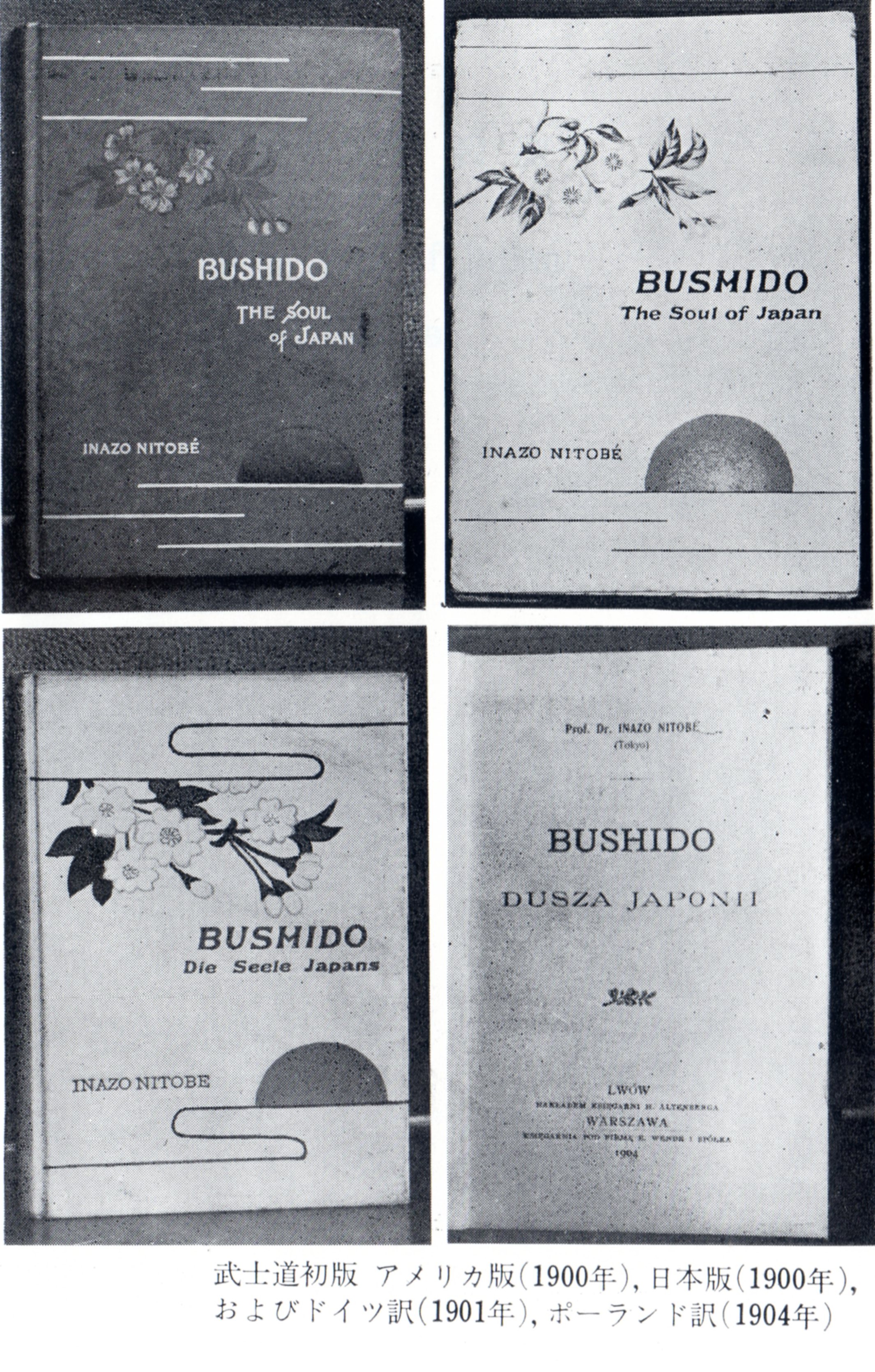
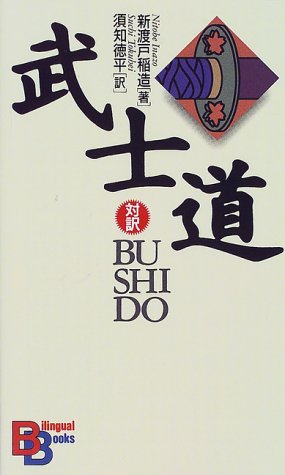
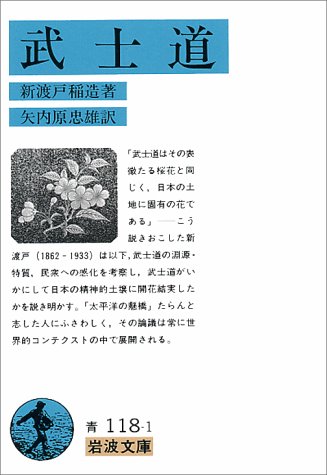
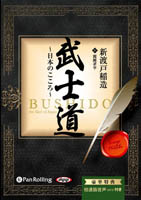 朗読,Read 朗読,Read
|
















 朗読,Read
朗読,Read
















 朗読,Read
朗読,Read